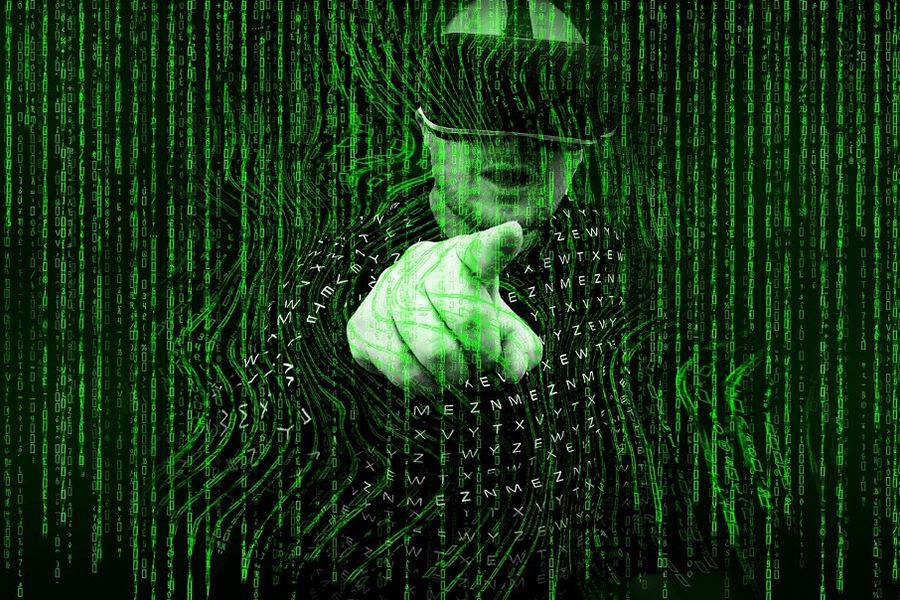In an age where digital footprints weave intricate trails of information, the need for skilled detectives in the digital realm has never been more critical. Picture this: a cybercrime investigator sits in front of a computer screen, analyzing fragments of data, meticulously decoding encrypted files, and piecing together digital puzzles. This scene encapsulates the essence of digital forensics—a field that has become indispensable in modern-day investigations and legal proceedings.
According to recent statistics, cybercrime is on the rise, with a staggering 1517{daf9f74892fa68f46765b17c9af5613defd0c5df4efbf7235e85efad18459e22} increase in reported incidents globally over the past twenty years. As technology advances, so do the methods of cybercriminals, making it imperative for organizations and individuals alike to fortify their defenses and seek expert assistance when faced with digital threats.
Embarking on this journey through the intricacies of digital forensics, one encounters a realm where every byte tells a story, and every clue leads to potential answers. Welcome to the world of Eclipse Forensics—an institution dedicated to unraveling digital mysteries, deciphering complex data trails, and providing crucial insights to drive legal proceedings and investigations forward.
Eclipse Forensics stands as a beacon of expertise in the realm of digital forensics, offering a diverse range of services tailored to meet the evolving needs of clients navigating the complexities of digital investigations. Their team comprises seasoned data forensic expert, digital forensic engineers, and consultants who bring a wealth of experience and technical proficiency to every case they handle.
In this blog, we’ll explore various digital forensic services in detail, including forensic analysis, data recovery, redaction, and file extraction. We’ll also look at some Insights into the role of digital forensic experts and engineers in uncovering critical evidence and supporting legal proceedings.
Unraveling Digital Mysteries: The Spectrum of Services
1. Forensic Analysis:
Forensic analysis lies at the heart of digital forensics, encompassing a comprehensive examination of digital devices to uncover crucial evidence and insights.
Let’s delve deeper into the intricacies of forensic analysis and its significance in digital investigations:
In-Depth Examinations of Digital Devices: Forensic analysts conduct meticulous examinations of digital devices, including computers, smartphones, tablets, external storage media, and IoT devices. These examinations involve acquiring forensic images of storage media, preserving the integrity of digital evidence, and documenting the chain of custody to ensure admissibility in legal proceedings. By scrutinizing digital artifacts, metadata, and system logs, analysts uncover traces of user activity, communications, and file access patterns that may hold evidentiary value.

Utilization of Advanced Tools and Techniques: Forensic analysts leverage a diverse array of advanced tools and techniques to extract, analyze, and interpret digital evidence effectively. This includes forensic imaging software for creating bit-by-bit copies of storage media, data carving tools for recovering deleted files, and network forensics tools for analyzing network traffic and communication patterns. Additionally, analysts employ memory forensics techniques to analyze volatile memory contents and identify running processes, open files, and network connections. By staying abreast of the latest advancements in forensic technology, analysts ensure the accuracy, reliability, and comprehensiveness of their analysis.
Comprehensive Reports and Expert Testimony: Following forensic analysis, analysts compile comprehensive reports documenting their findings, methodologies, and conclusions. These reports provide detailed insights into the digital evidence uncovered during the investigation, including timestamps, file metadata, user interactions, and relevant artifacts. Moreover, analysts may provide expert testimony in legal proceedings to elucidate the significance of digital evidence, explain forensic methodologies, and corroborate findings with empirical data. By presenting clear and compelling narratives supported by forensic analysis, analysts contribute to the establishment of facts and the pursuit of justice in legal proceedings.
2. Data Recovery:
Data recovery is a crucial aspect of digital forensics, focusing on retrieving valuable information from damaged, corrupted, or compromised storage devices.
Let’s explore the methodologies and significance of data recovery services in greater detail:
Specialized Methods for Retrieval: Data recovery specialists employ a variety of specialized methods and tools to retrieve data from damaged or inaccessible storage devices. These methods may include disk imaging, file carving, logical and physical data recovery techniques, and forensic analysis of storage media. By utilizing a combination of hardware and software solutions, data recovery experts can recover data from a wide range of storage devices, including hard drives, solid-state drives (SSDs), USB drives, memory cards, and mobile devices.
Salvaging Critical Information: Data recovery services are essential for salvaging critical information that may have been lost due to various factors, such as accidental deletion, formatting errors, hardware failures, or cyber-attacks. Whether it’s recovering important documents, financial records, or multimedia files, data recovery specialists work tirelessly to recover as much data as possible from compromised storage devices. This process involves meticulously scanning storage media for traces of deleted or inaccessible data and employing advanced recovery techniques to extract and reconstruct fragmented files.
Data Reconstruction and Restoration: In addition to retrieving lost data, data recovery services offer solutions for data reconstruction and restoration to ensure minimal data loss. This may involve reconstructing file structures, repairing damaged file systems, and recovering deleted or overwritten data clusters. Data recovery specialists utilize forensic analysis techniques to piece together fragmented data and reconstruct files in their original or usable formats. By leveraging their expertise in data reconstruction, specialists strive to restore the integrity and completeness of recovered data, enabling clients to regain access to vital information for investigative or legal purposes.

3. Redaction Services:
Redaction services are essential in the realm of digital forensics for safeguarding sensitive information while preserving the integrity of evidence.
Let’s delve deeper into the intricacies of redaction techniques and their significance:
Safeguarding Sensitive Information: Redaction involves the careful removal or obscuring of confidential data from digital files, such as documents, images, or videos. This process ensures that sensitive information, such as personally identifiable information (PII), financial records, or classified data, remains protected from unauthorized access or disclosure.
Compliance with Privacy Regulations: Redaction services play a crucial role in ensuring compliance with privacy regulations and data protection laws. By systematically identifying and redacting sensitive information, forensic analysts help organizations mitigate the risk of privacy breaches and regulatory non-compliance. This proactive approach to data security demonstrates a commitment to safeguarding individual privacy rights and maintaining legal and ethical standards.
Preserving Evidence Integrity: Despite the removal of sensitive information, redaction services aim to preserve the integrity of evidence for investigative or legal purposes. Forensic analysts employ meticulous redaction techniques that maintain the contextual relevance of documents while obfuscating specific data points. By striking a balance between information security and evidentiary value, redaction services facilitate the seamless integration of digital evidence into legal proceedings.
4. File Extraction and Conversion:
File extraction and conversion services are instrumental in digital forensics, which retrieves relevant data from various digital sources and facilitates analysis and presentation.
Let’s explore the functionalities and significance of these services:
Extracting Relevant Files and Data: Forensic analysts utilize specialized tools and techniques to extract relevant files and data from diverse digital sources, including emails, documents, databases, and multimedia files. This process involves acquiring forensic images of storage media, extracting file artifacts from disk images, and parsing structured data from databases or application files. By systematically identifying and retrieving pertinent information, analysts ensure comprehensive coverage of digital evidence.
Converting Files into Accessible Formats: File conversion services enable forensic analysts to convert digital files into accessible formats for analysis and presentation purposes. This includes converting proprietary file formats into standard formats compatible with forensic analysis tools and software. Additionally, analysts may convert multimedia files, such as audio or video recordings, into transcribable or analyzable formats to extract valuable insights from digital media.
Support for E-Discovery Processes: File extraction and conversion services play a pivotal role in supporting e-discovery processes, where digital evidence is collected, processed, and produced in legal proceedings. Forensic analysts ensure the integrity and authenticity of digital evidence throughout the extraction and conversion process, adhering to established forensic standards and chain of custody protocols. Moreover, these services facilitate seamless data transfer between platforms, enabling efficient collaboration between legal teams and forensic experts.
Navigating the Digital Landscape: The Role of Experts

In the ever-evolving landscape of digital forensics, the expertise of digital forensic experts and engineers stands as the cornerstone of effective investigation and evidence extraction. Let’s delve deeper into the roles and responsibilities of these professionals:
1. Digital Forensic Experts:
Specialized Knowledge and Experience: Digital forensic experts are equipped with a deep understanding of digital systems, data storage formats, operating systems, and network architectures. Their expertise extends to various forensic techniques, including data recovery, file carving, memory analysis, and timeline reconstruction. This specialized knowledge allows them to navigate complex data trails with precision and efficiency.
Thorough Investigations: One of the primary roles of digital forensic experts is to conduct thorough investigations into digital artifacts and electronic devices. They meticulously analyze digital evidence, including emails, documents, images, videos, and metadata, to uncover hidden insights and potential leads. By following established forensic protocols and methodologies, they ensure the integrity and admissibility of evidence in legal proceedings.
Forensic Tools and Methodologies: Digital forensic experts leverage a wide array of specialized tools and software to preserve, acquire, and analyze digital evidence. These tools range from forensic imaging software for bit-by-bit copies of storage media to data recovery utilities for retrieving deleted files. By staying abreast of the latest advancements in forensic technology, experts can effectively extract and interpret digital artifacts from diverse sources.
Collaboration with Legal Professionals: Digital forensic experts play a crucial role in supporting legal professionals and law enforcement agencies during investigations and legal proceedings. They provide expert testimony, forensic reports, and analysis to assist in case preparation and courtroom presentations. Their collaboration ensures that digital evidence is properly documented, analyzed, and interpreted within the confines of legal standards and regulations.
2. Digital Forensic Engineers:
Tailored Forensic Solutions: Digital forensic engineers specialize in designing and implementing forensic solutions tailored to meet the unique needs of each case. They assess the requirements of the investigation, including the types of digital evidence involved, the scope of analysis, and the desired outcomes. Based on these requirements, engineers develop customized workflows, methodologies, and tools to optimize the investigative process.
Custom Tools and Software Development: In addition to utilizing commercial off-the-shelf (COTS) forensic tools, digital forensic engineers often engage in the development of custom software and utilities. These tools address specific challenges encountered during investigations, such as data extraction from proprietary file formats, decryption of encrypted files, or analysis of specialized devices. By harnessing their programming skills and domain expertise, engineers empower forensic analysts with innovative solutions to complex problems.
Expert Guidance and Technical Support: Throughout the investigative process, digital forensic engineers provide expert guidance and technical support to forensic teams. They offer insights into emerging trends, methodologies, and technologies in the field of digital forensics. Moreover, engineers troubleshoot technical issues, optimize forensic workflows, and ensure the reliability and efficiency of forensic tools and systems.

Navigating the Path Ahead
As the digital landscape continues to evolve, the need for comprehensive digital forensic services becomes increasingly apparent. Whether faced with cyber threats, legal disputes, or data breaches, organizations and individuals require the expertise of seasoned professionals to navigate the complexities of digital investigations effectively.
Eclipse Forensics stands at the forefront of this ever-expanding field, offering a wide range of services designed to address the diverse needs of clients across industries. With a team of skilled data forensic experts, digital forensic engineers, and consultants, Eclipse Forensics provides unparalleled expertise and support to guide clients through the intricacies of digital investigations.
Embark on your journey through the digital landscape with confidence, knowing that Eclipse Forensics is here to illuminate the path ahead. Whether you require forensic analysis, data recovery, or expert testimony, their team is ready to provide the solutions you need to navigate the complexities of digital investigations effectively.
Contact Eclipse Forensics today to learn more about their services and discover how they can help you uncover the truth in the digital realm.






